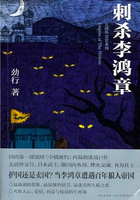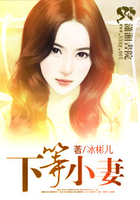"No, no, that's not what she means," Rodney interposed. "I quite agree that women have an immense advantage over us there. One misses a lot by attempting to know things thoroughly.""He knows Greek thoroughly," said Katharine. "But then he also knows a good deal about painting, and a certain amount about music. He's very cultivated--perhaps the most cultivated person I know.""And poetry," Cassandra added.
"Yes, I was forgetting his play," Katharine remarked, and turning her head as though she saw something that needed her attention in a far corner of the room, she left them.
For a moment they stood silent, after what seemed a deliberate introduction to each other, and Cassandra watched her crossing the room.
"Henry," she said next moment, "would say that a stage ought to be no bigger than this drawing-room. He wants there to be singing and dancing as well as acting--only all the opposite of Wagner--you understand?"They sat down, and Katharine, turning when she reached the window, saw William with his hand raised in gesticulation and his mouth open, as if ready to speak the moment Cassandra ceased.
Katharine's duty, whether it was to pull a curtain or move a chair, was either forgotten or discharged, but she continued to stand by the window without doing anything. The elderly people were all grouped together round the fire. They seemed an independent, middle-aged community busy with its own concerns. They were telling stories very well and listening to them very graciously. But for her there was no obvious employment.
"If anybody says anything, I shall say that I'm looking at the river,"she thought, for in her slavery to her family traditions, she was ready to pay for her transgression with some plausible falsehood. She pushed aside the blind and looked at the river. But it was a dark night and the water was barely visible. Cabs were passing, and couples were loitering slowly along the road, keeping as close to the railings as possible, though the trees had as yet no leaves to cast shadow upon their embraces. Katharine, thus withdrawn, felt her loneliness. The evening had been one of pain, offering her, minute after minute, plainer proof that things would fall out as she had foreseen. She had faced tones, gestures, glances; she knew, with her back to them, that William, even now, was plunging deeper and deeper into the delight of unexpected understanding with Cassandra. He had almost told her that he was finding it infinitely better than he could have believed. She looked out of the window, sternly determined to forget private misfortunes, to forget herself, to forget individual lives. With her eyes upon the dark sky, voices reached her from the room in which she was standing. She heard them as if they came from people in another world, a world antecedent to her world, a world that was the prelude, the antechamber to reality; it was as if, lately dead, she heard the living talking. The dream nature of our life had never been more apparent to her, never had life been more certainly an affair of four walls, whose objects existed only within the range of lights and fires, beyond which lay nothing, or nothing more than darkness. She seemed physically to have stepped beyond the region where the light of illusion still makes it desirable to possess, to love, to struggle.
And yet her melancholy brought her no serenity. She still heard the voices within the room. She was still tormented by desires. She wished to be beyond their range. She wished inconsistently enough that she could find herself driving rapidly through the streets; she was even anxious to be with some one who, after a moment's groping, took a definite shape and solidified into the person of Mary Datchet. She drew the curtains so that the draperies met in deep folds in the middle of the window.
"Ah, there she is," said Mr. Hilbery, who was standing swaying affably from side to side, with his back to the fire. "Come here, Katharine. Icouldn't see where you'd got to--our children," he observed parenthetically, "have their uses--I want you to go to my study, Katharine; go to the third shelf on the right-hand side of the door;take down 'Trelawny's Recollections of Shelley'; bring it to me. Then, Peyton, you will have to admit to the assembled company that you have been mistaken.""'Trelawny's Recollections of Shelley.' The third shelf on the right of the door," Katharine repeated. After all, one does not check children in their play, or rouse sleepers from their dreams. She passed William and Cassandra on her way to the door.
"Stop, Katharine," said William, speaking almost as if he were conscious of her against his will. "Let me go." He rose, after a second's hesitation, and she understood that it cost him an effort.
She knelt one knee upon the sofa where Cassandra sat, looking down at her cousin's face, which still moved with the speed of what she had been saying.
"Are you--happy?" she asked.
"Oh, my dear!" Cassandra exclaimed, as if no further words were needed. "Of course, we disagree about every subject under the sun,"she exclaimed, "but I think he's the cleverest man I've ever met--and you're the most beautiful woman," she added, looking at Katharine, and as she looked her face lost its animation and became almost melancholy in sympathy with Katharine's melancholy, which seemed to Cassandra the last refinement of her distinction.
"Ah, but it's only ten o'clock," said Katharine darkly.
"As late as that! Well--?" She did not understand.
"At twelve my horses turn into rats and off I go. The illusion fades.
But I accept my fate. I make hay while the sun shines." Cassandra looked at her with a puzzled expression.
"Here's Katharine talking about rats, and hay, and all sorts of odd things," she said, as William returned to them. He had been quick.
"Can you make her out?"
Katharine perceived from his little frown and hesitation that he did not find that particular problem to his taste at present. She stood upright at once and said in a different tone:















